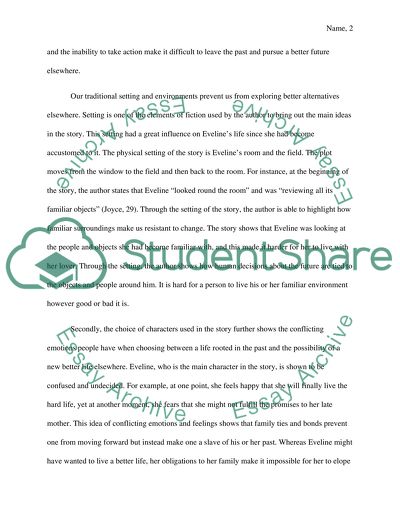Cite this document
(How the Past Affects Our Future in Eveline by James Joyce Essay, n.d.)
How the Past Affects Our Future in Eveline by James Joyce Essay. Retrieved from https://studentshare.org/literature/1636242-analysis-a-story
How the Past Affects Our Future in Eveline by James Joyce Essay. Retrieved from https://studentshare.org/literature/1636242-analysis-a-story
(How the Past Affects Our Future in Eveline by James Joyce Essay)
How the Past Affects Our Future in Eveline by James Joyce Essay. https://studentshare.org/literature/1636242-analysis-a-story.
How the Past Affects Our Future in Eveline by James Joyce Essay. https://studentshare.org/literature/1636242-analysis-a-story.
“How the Past Affects Our Future in Eveline by James Joyce Essay”, n.d. https://studentshare.org/literature/1636242-analysis-a-story.


